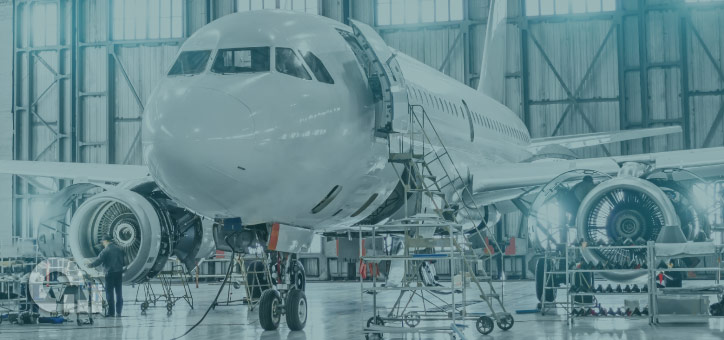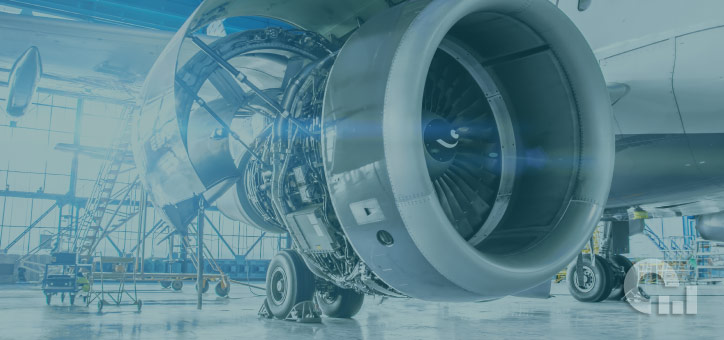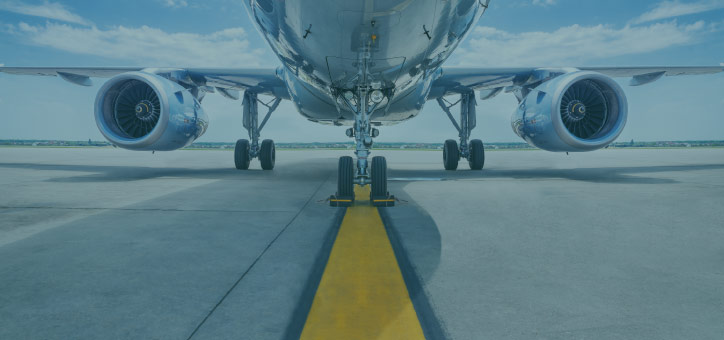Dreaming of flying high in the sky as well as in your career?
Aviation degrees prepare students to not only live the dream of flying for a living as a commercial or private pilot, but also to work on the cutting edge of the aeronautical and aerospace industries, in technical roles in the building and maintenance of planes, or in crucial decision-making capacities for airlines and airports.
There are many different kinds of aviation degrees, covering different aspects of the industry. Some aviation degrees are offered online, while some aviation-related degrees focus on space travel.
In this guide, we’ll introduce you to these different kinds of aviation degrees, covering the minimum prerequisites, and the kind of coursework to expect across all the different kinds of programs.
No matter which aviation degree you select, there are any number of great job opportunities available in the aviation industry, so let’s get started.
What Degree Is Best for Aviation?
From pilots to technicians, and from airport managers to research scientists pushing the limits of aeronautics, different kinds of aviation degrees have different areas of emphasis, and go by many different names.
Here are just a few examples:
- Bachelor of Aviation
- Bachelor of Science in aviation technology
- Bachelor of Science in aerospace engineering
- Bachelor of Aeronautical Science
- Bachelor of Science in air traffic management
- Bachelor of Science in aviation management
- Bachelor of Science in aviation maintenance
Some degrees listed will prepare a student for the business of airports and airlines, the science of flight, or to become a pilot. Although some aviation degrees include pilot certification as part of the program, students who are interested in becoming a pilot will usually need to pursue additional certification after they graduate.
How to Become a Commercial Pilot
It is sometimes possible to work as a commercial pilot with nothing more than a high school diploma or equivalent, according to the Bureau of Labor Statistics, and a commercial pilot’s license from the Federal Aviation Administration (FAA). Many transition to the commercial aviation industry from the military.

How to Become an Airline Pilot
Unlike commercial pilots, airline pilots typically need a bachelor’s degree in aviation with an FAA-issued Airline Transport Pilot (ATP) certificate, according to the BLS.
Also according to the BLS, commercial pilots make about $93,000 a year, while airline pilots make about $161,000 a year, on average. Additional good news for anyone interested in becoming a pilot is that across both industries, job prospects are expected to grow at a rate of 5% from 2019 to 2029, which is faster than average for many other professions.
Typical Coursework and Prerequisites in Aviation Degree Programs
Regardless of the bachelor’s degree program in aviation that you choose, a high school diploma or equivalent is a prerequisite with a GPA of at least 2.0, but admission requirements may vary. Submitting SAT or ACT scores may also be required. Most bachelor’s degree programs take 4 to 6 years to complete, and some accelerated aviation degrees include a pilots license.
Otherwise, typical coursework in an aviation program may cover topics like the following, among many others:
- Aircraft maintenance
- Airport management
- Aircraft composites
- Aviation human factors
- Carburetion and fuel systems
- Flight training
- Aerodynamics and thermodynamics
- Space flight dynamics
- Space propulsion and power
- Air traffic management
- Airline and business management
Common traits and aptitudes among those successful in aviation programs include: teamwork, cooperation, math, science, and the ability to work well under pressure.
Aviation degrees are not limited to bachelor’s degrees, however. Associate degrees in aviation are also common, and so, too, are graduate degrees in aviation for those interested in continuing their school experience beyond a bachelor’s. We’ll tell you what to expect from these degree programs in our next section.
Associate Degree in Aviation
Associate degrees in aviation, aeronautical science, or aviation technology are two-year, highly technical, one to two years Associate of Science (AS) or Associate of Applied Science (AAS) programs, offered both online or in the classroom.
Students who take the AS route will be qualified to transfer to a four year program in aviation, or enter the workforce in entry-level positions in the industry. Most commercial airlines typically require their pilots to have bachelor’s degrees, however smaller regional or private airlines may hire pilots with an AS or AAS degree as well as a pilot’s license.

AAS degrees are typically non-transferable and are intended for those interested in entering the workforce as quickly as possible in a technical capacity. A high school diploma is the minimum education requirement with a GPA of at least 2.0. ACT or SAT scores may also be required, though admissions requirements vary between programs.
Graduate Degrees in Aviation
There are a number of great graduate degree programs in aviation for those interested in pursuing their education beyond a bachelor’s degree, covering different aspects of the industry. Here are a few examples, among many others:
- Master of Business Administration (MBA) in aviation
- Master of Science (MS) in aeronautical science
- Master of Science in aviation and aerospace management
A master’s degree of any sort typically qualifies a graduate to teach at the college or university level, or to work in the industry in a management or administrative capacity. A bachelor’s degree in the minimum education requirement for a graduate degree program, with a GPA of at least 2.5. GRE scores may also be required, along with letters of recommendation or a statement of personal intent.
Ph.D. and other doctoral degrees are also offered in aviation for those interested in working in research, to find employment with the Federal Aviation Association (FAA), or teach at a college or university. Some examples of Ph.D. programs include:
- Ph.D. in aviation sciences
- Ph.D. in aviation technology and management
- Ph.D. in civil aviation
A master’s degree is the minimum prerequisite for a Ph.D. program, with a GPA of at least 3.0. Letters of recommendation or a statement of personal intent may also be required.
Take-Offs and Landings
From an associate to a Ph.D., aviation degrees are a great way to get your start in the aeronautical industry, or even in space exploration. From pilots to researchers, and from mechanics to teachers, there are a number of great degree programs preparing the next generation of aviation professionals.





